Logical Reasoning Reading Comprehension Worksheets for Ages 3-6
7 filtered results
-
From - To
Enhance your child's cognitive development with our engaging Logical Reasoning Reading Comprehension Worksheets, designed specifically for ages 3 to 6. These worksheets cultivate analytical thinking and problem-solving skills while making reading fun and interactive. Your little ones will navigate through a variety of activities that challenge their reasoning abilities, helping them to identify patterns, make connections, and draw conclusions from various texts. Perfect for parents and educators alike, our resources foster critical early literacy skills while nurturing a love for reading. Explore our collection today and set the foundation for lifelong learning through dynamic logical reasoning exercises!
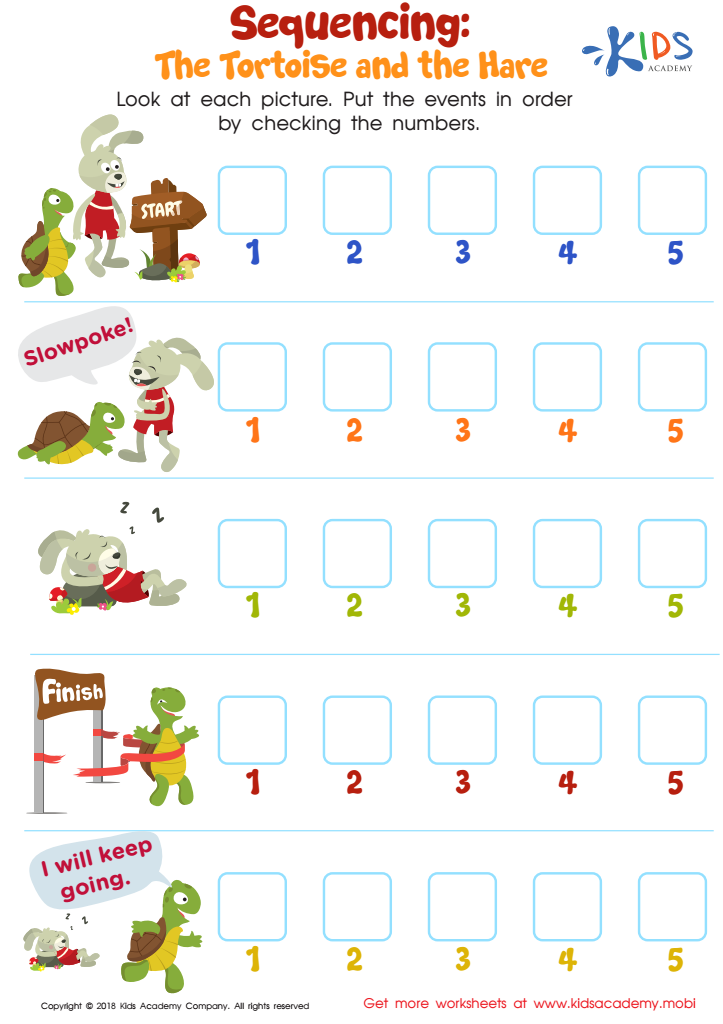

Sequencing: The Tortoise and the Hare Worksheet
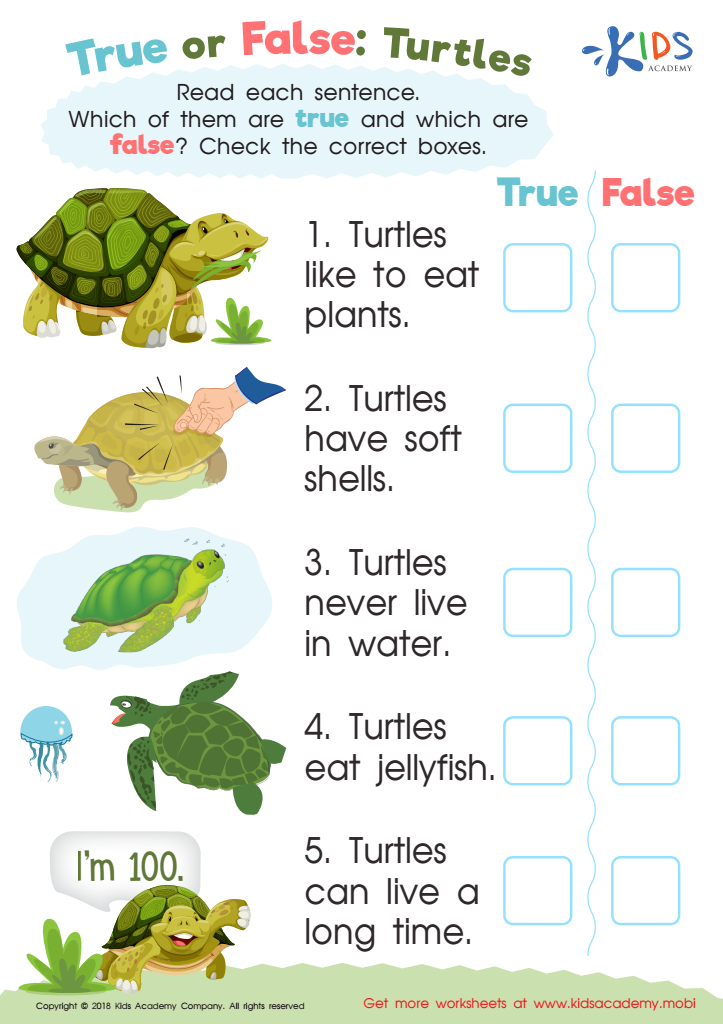

True or False: Turtles Worksheet
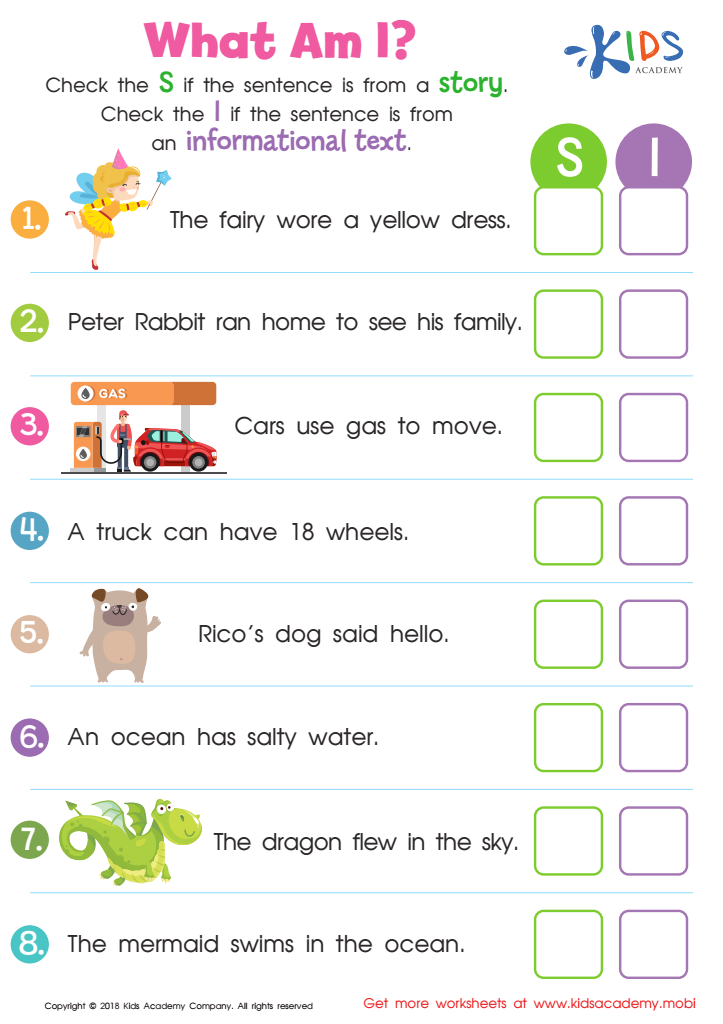

What Am I? Worksheet
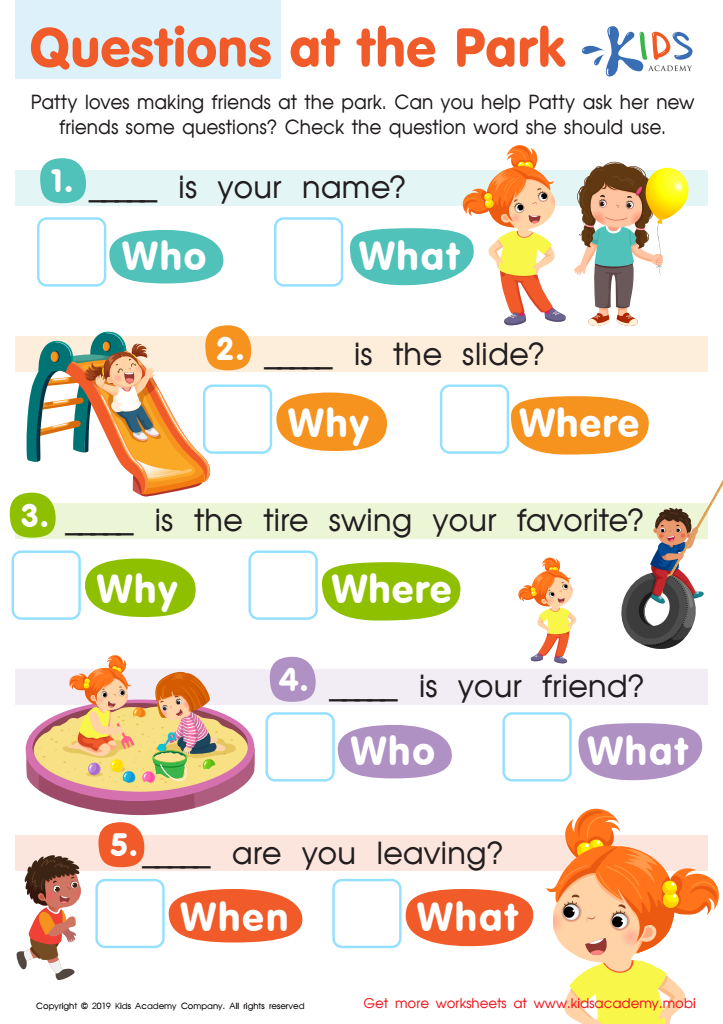

Questions at the Park Worksheet
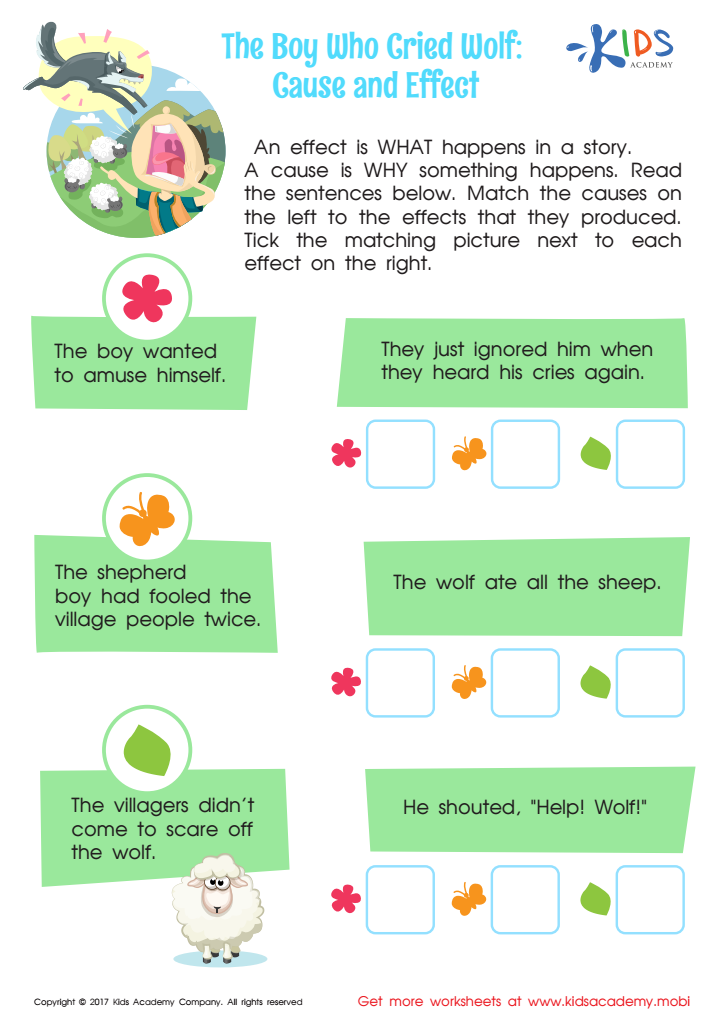

The Boy Who Cried Wolf: Cause and Effect Worksheet
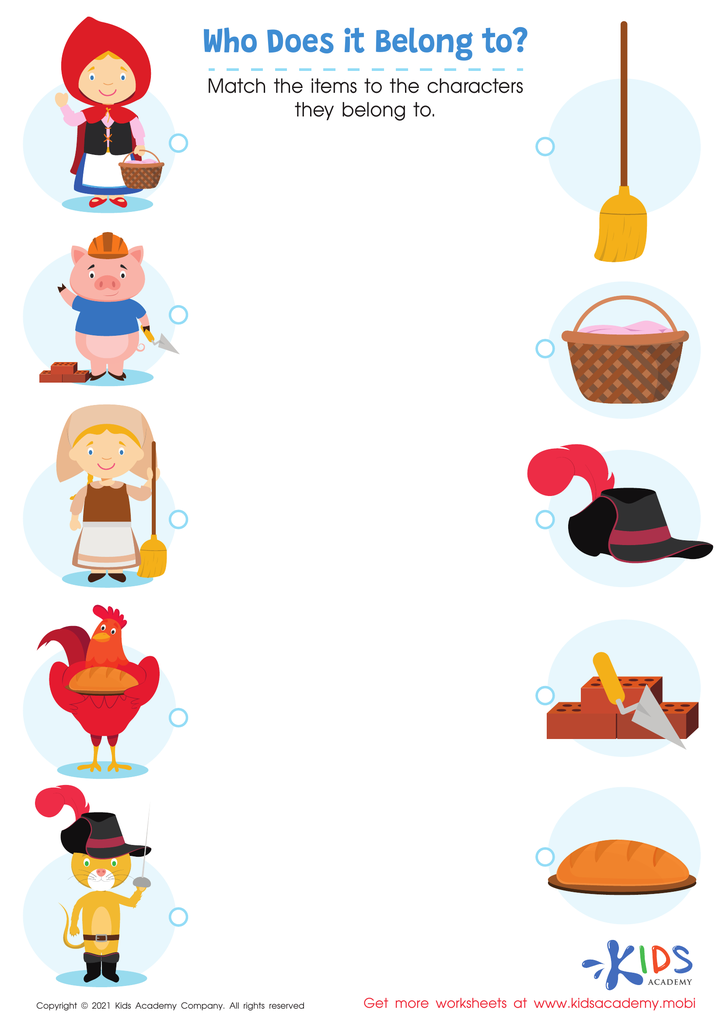

Who Does It Belong To? Worksheet
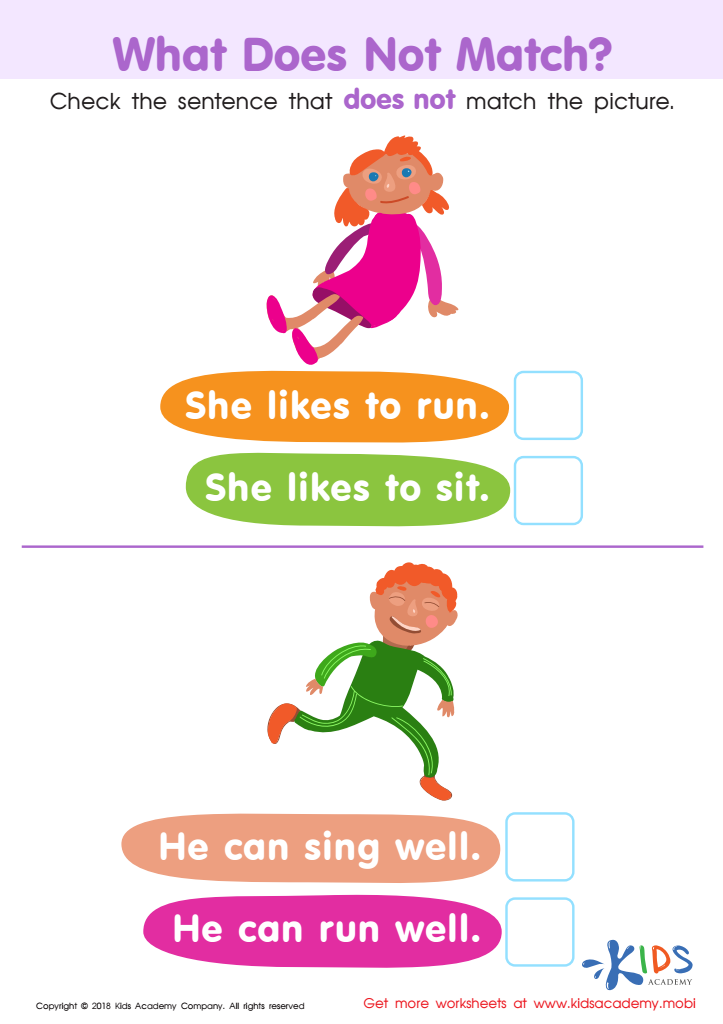

What Does Not Match? Worksheet
Logical reasoning and reading comprehension are foundational skills that can significantly shape a child's cognitive development and academic success. For children aged 3-6, these skills not only support literacy but also foster critical thinking, problem-solving, and the ability to make connections between ideas. When parents and teachers prioritize logical reasoning activities, they help enhance children's ability to analyze situations, understand cause-and-effect relationships, and draw conclusions based on evidence.
Reading comprehension goes hand-in-hand with logical reasoning; it aids in patience and persistence when processing new information. Engaging children with age-appropriate stories encourages them to make predictions, ask questions, and recount events, boosting both comprehension and fluency.
Developing these skills early lays a strong academic foundation, giving children the confidence to tackle more complex concepts as they progress in school. Furthermore, the early years are critical for social and emotional growth; children learn to communicate effectively and understand differing viewpoints through stories. By emphasizing logical reasoning and reading comprehension, parents and teachers contribute to fostering curious, analytical, and empathetic individuals, ready to navigate the world around them. In short, supporting these skills is an investment in a child's overall development.
 Assign to My Students
Assign to My Students









.jpg)








